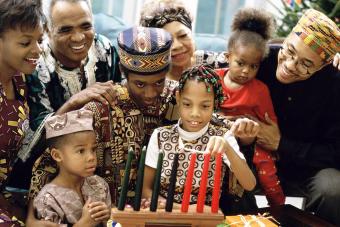
A kids' science dictionary is an important addition to a child's library. Parents have a few options to consider when shopping for the right publication for their child and some online resources can serve as excellent supplements.
What a Kids' Science Dictionary Offers
A kids' science dictionary stands out from typical children's dictionaries because it specializes in scientific terms. Look for texts that offer age-appropriate terms and colorful illustrations that grasp attention. In addition, a good dictionary offers guidance and extra information.
Two outstanding examples of science dictionaries for school-aged children are the Science Dictionary for Kids and the American Heritage Children's Science Dictionary.
Science Dictionary for Kids
Science Dictionary for Kids: The Essential Guide to Scientific Terms, Concepts and Strategies by Laurie E. Westphal is an excellent selection for children in grades four to nine. The book begins with a quote from Carl Sagan, "Science is a way of thinking much more than it is a body of knowledge." The inspiring quote brings to light the idea that science is much more than terms, units and formulas. Westphal has combined defining terms with the scientific method to create a rich learning experience. The book is organized into categories:
- Scientific equipment
- The scientific process
- Measurements and units
- The sciences: life, physical, earth and space
- Quick reference guide
The kids' science dictionary includes words typically found in science dictionaries, but with a focus on helping kids to think scientifically. The dictionary includes graphics and diagrams that reinforce concepts typically taught in science class. The quick reference guide offers concise presentations of scientific concepts that are confusing to many students and each guide reinforces the scientific method.
American Heritage Children's Science Dictionary
The American Heritage Children's Science Dictionary is ideal for students in fourth to sixth grade. This dictionary is rich with more than 2,500 entries that include pronunciation guides along with one or two concise definitions.
The American Heritage dictionary includes biographies of famous scientists and it features "Did You Know?" boxes throughout, which offer tidbits of information. The "A Closer Look" segments use images to help students understand complex topics like cells, skeletons and machines. Other great features include:
- Explanation of parts of the dictionary
- Scientific abbreviations
- Timeline of scientific discoveries
- Tables and charts
The tables and charts offer graphic representations that can help make complicated concepts easier for kids to understand.
- Classification of life
- Geologic time
- Measurement table
- Periodic table of the elements
- Planets
- Types of rocks
- Vitamins
Science for Younger Kids
Children ages four to eight may enjoy First Science Dictionary. The dictionary is just over 100 pages long and it includes simple definitions along with clean, colorful illustrations. The book may be a nice complement to kids' science projects at home or school.
Supplemental Resources
Consider adding an encyclopedia for kids to your child's library for cross-reference along with fun books about space, animals, math and nature. A child is likely to adopt concepts that are repeated and reinforced in a number of different ways.
In addition, a children's online science dictionary may be a great tool to add for kids who love computers. The online dictionaries include a wide range of topics as well as a visual dictionary for children who learn best with images.
A traditional dictionary is a staple for a child's library, but investing in a children's science dictionary offers specialized focus and additional features that help kids learn to think like scientists.







